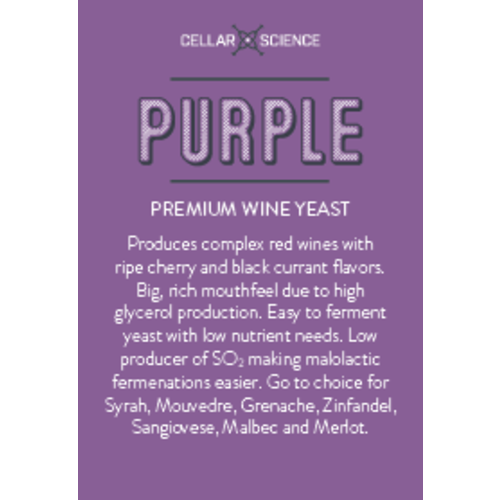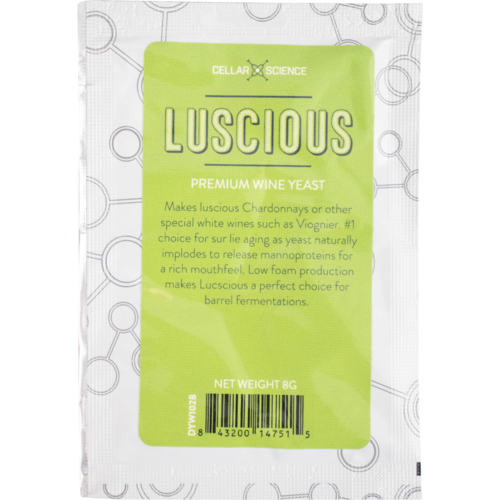- Cleaves (Chops!) thiols releasing citrus, passionfruit, grapefruit, floral flavors
- Ferment at 58-61 for maximum enzymatic activity
- #1 Choice for Sauvinon Blanc. Also good for Viognier
Oh thiols, you elusive magical compound. Nice try hiding behind Cysteine-4mmp, but CITRUS sees you. Cleaving thiols from other compounds is what CITRUS does, releasing the classic citrus, lime, passionfruit, and floral flavors that help separate styles like Sauvignon Blanc and Viognier from ordinary white table wine. Also can be used with Chardonnay , other whites, and is great for Rose. CITRUS can ferment at cooler temperatures but the enzymatic cleaving activity is highest at around 56-60F. So if you like Zesty Grapefruit, lime, lemon peel, floral, and passionfruit flavors, CITRUS may be your yeast. This yeast is good and perserving acidity so if you are working with whites from a warmer region that can be particularly helpful.
More on Thiols:
Thiols are organic sulphur compounds that are resonsible for the most prized flavors in many white wines. 4mmp (black current), 3MH (Passion fruit, Grapefruit and Citrus) and 3MHA (Tropical Passionfruit, Rose)
Start Time: Average
Alcohol tolerance: 14%+
Nitrogen Demand: low
Production of volatile acidity: Average
Production of H2S: Average
Production of SO2: Low
Ease to Ferment with MLF: Good
Proper yeast hydration helps ensure a healthy fermentation. For every gram of yeast, mix .25 g of FermStart yeast nutrient with 25 ml of sterilized tap water between 104–106°F/40–41°C. When water reaches 104°F/40°C, sprinkle yeast into water and stir gently. Allow the slurry to stand undisturbed for 15 minutes and then stir again. For every gram of yeast used add 25 ml of clean must to the yeast slurry and let stand 15–20 minutes. If necessary, use additional must to adjust yeast slurry to within 18°F of must temp before pitching. For a complete nutrient schedule sufficient for most fermentations, add 1.5 g of FermFed DAP Free per gallon of must at the first sign of fermentation and 1 g of FermFed per gallon of must after 1/3 sugar depletion.








